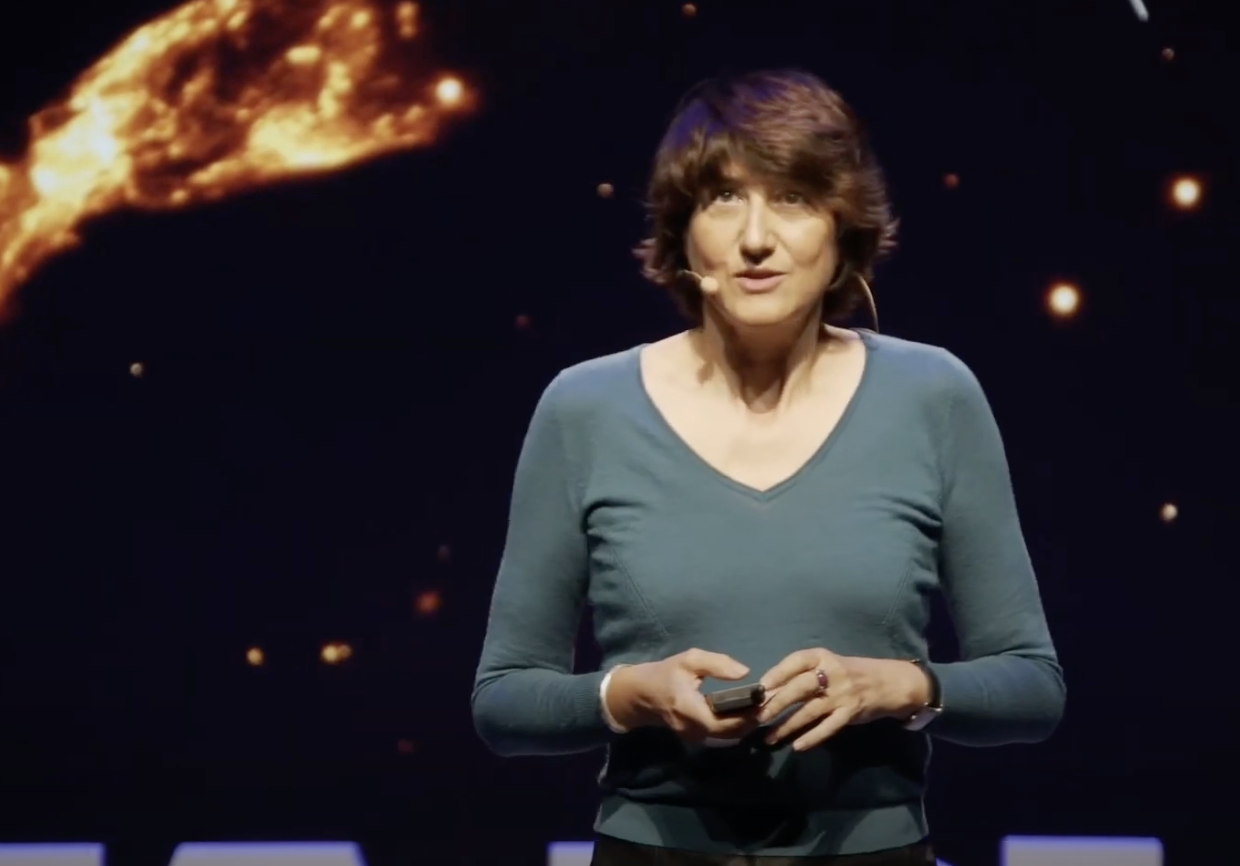 |
Cabrit, Sylvie Filiation: Observatoire de Paris, LERMA department Biography Funds from the SO had been granted to this researcher, but she could not come because her father became ill and eventually passed away. For this reason, she was unable to come to the IAA during 2025 year. Sylvie Cabrit is a renowned astrophysicist whose research focuses on the formation and early evolution of stars and planetary systems. She is particularly well-known for her pioneering studies on protostellar outflows and jets, phenomena that play a critical role in star formation by redistributing angular momentum and influencing the surrounding environment. Dr. Cabrit has made significant contributions to understanding the physical processes driving these outflows, utilizing both observational data from state-of-the-art facilities and theoretical models. Her work spans multiple wavelengths, including radio, infrared, and optical observations, providing comprehensive insights into the dynamics and energetics of young stellar objects. In addition to her research, Sylvie Cabrit is a dedicated mentor and educator, inspiring the next generation of scientists. She is also an active collaborator in international projects, contributing to advancements in astrophysical instrumentation and fostering global scientific cooperation. Her achievements have earned her a prominent reputation in the astrophysics community, making her a key figure in unraveling the complexities of star and planet formation. Date:
|
|||||
 |
Kopsacheili, Maria Filiation: ICE-CSIC Biography I obtained my PhD in Astrophysics from the University of Crete, where I studied populations of Galactic and extragalactic supernova remnants (SNRs). During my doctoral research, I developed model-driven diagnostic methods for the optical identification of SNRs, incorporating machine-learning algorithms for objective classification. After my PhD, I joined the Institute of Space Sciences (ICE-CSIC) as a Junior Postdoctoral Fellow funded by the María de Maeztu Excellence Program, and I am currently a Juan de la Cierva Fellow. My research focuses on the multi-wavelength characterization of SNRs and supernovae, their impact on the interstellar medium, and the development of quantitative and AI-assisted tools to obtain unbiased population properties. I also collaborate in international projects such as PESSTO and i-COOP, contributing to observational programs and spectroscopic data analysis related to stellar feedback and transient phenomena. Date:
|
|||||
 |
Desch, Steve Filiation: Arizona State University, USA Biography Steven J. Desch is a Professor at Arizona State University’s School of Earth and Space Exploration. With a Ph.D. in Physics from the University of Illinois, his interdisciplinary research spans astrophysics, planetary science, meteoritics, and exoplanetary systems. He has made significant contributions to understanding the early solar system, including the formation of chondrules, the distribution of short-lived radionuclides, and the origin of interstellar objects like 1I/‘Oumuamua. Desch developed the IcyDwarf and ExoPlex modeling codes, advancing knowledge of icy dwarf planets and exoplanet compositions. He has led major NASA-funded projects totaling over $15 million and authored over 100 peer-reviewed publications. A recipient of the Alfred O. Nier Prize and Fellow of The Meteoritical Society, he is also the namesake of asteroid 9926 Desch. Date:
|
|||||
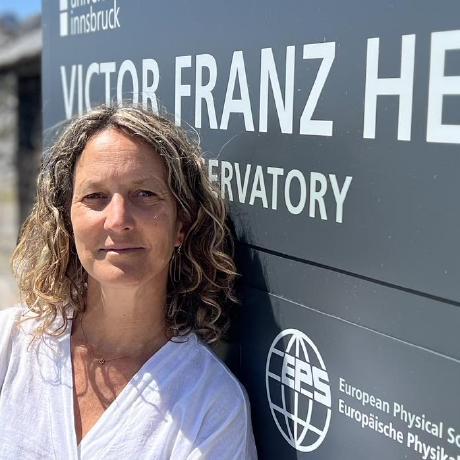 |
de Oña Wilhelmi, Emma Filiation: DESY Biography Dr. Emma de Oña Wilhelmi is an internationally recognized leader in gamma-ray astrophysics, with a strong record of scientific excellence, institutional engagement, and mentoring. She has held key leadership positions in major high-energy observatories, including Science Coordinator of the CTAO Consortium, Galactic Coordinator in MAGIC and H.E.S.S., and H.E.S.S. group leader at DESY. With over 300 peer-reviewed publications—including numerous first-author and small-team papers, and six in Science and Nature Astronomy in the past three years—her work has significantly shaped the understanding of Galactic gamma-ray sources and PeVatrons. Her scientific contributions span hardware development, advanced data analysis, and theoretical interpretation, with impactful roles in CTAO, H.E.S.S., MAGIC, and SWGO. She co-authored a seminal paper (Aharonian, Yang, de Oña Wilhelmi 2019) linking PeVatrons to massive stars. Her leadership extends to task and coordination within the CTAO Consortium where she served as Science coordinator. Dr. de Oña Wilhelmi has cultivated strong international collaborations, having worked with top-tier institutions in Germany (DESY and MPIK), France (APC), South Africa (NWU), and Spain (IFAE, ICE, and UCM). She has actively contributed to outreach and training through mentoring, public engagement, and initiatives that promote diversity in science. Her outstanding career has been recognized with prestigious awards such as the Humboldt Research Fellowship (2017), Ramón y Cajal Fellowship (2013), and the LEA-ELGA Fellowship (2007). She is presently the deputy head of the GAMMA division in DESY. Her upcoming stay at IAA-CSIC will contribute directly to the Severo Ochoa objectives by advancing scientific leadership, internationalization, mentoring, and societal outreach in high-energy astrophysics. Date:
|
|||||
 |
Skorov, Yuri Filiation: Max Planck Institute for Solar System Research Biography Dr. Yuri Skorov is a physicist specialising in computational modelling and planetary science. He earned his MSc with highest honours in thermodynamics and aerodynamics from the Moscow Institute of Physics and Technology, followed by a PhD in fluid and plasma mechanics from the Keldysh Institute of Applied Mathematics (Academy of Sciences, USSR), where he later served as a senior research fellow. Since 1997, he have been based in Germany, working at the Max Planck Institute for Solar System Research and TU Braunschweig, contributing to major ESA missions: Rosetta, Cassini-Huygens, JUICE and others. His research focuses on numerical modelling of physical processes on Solar System bodies. He has led DFG and ISSI projects on cometary physics and authored over 150 publications. He is also an academic teacher and reviewer for leading scientific journals. Dr. Skorov's work combines theoretical modelling with analysis of remote sensing and laboratory simulations. Date:
|
|||||
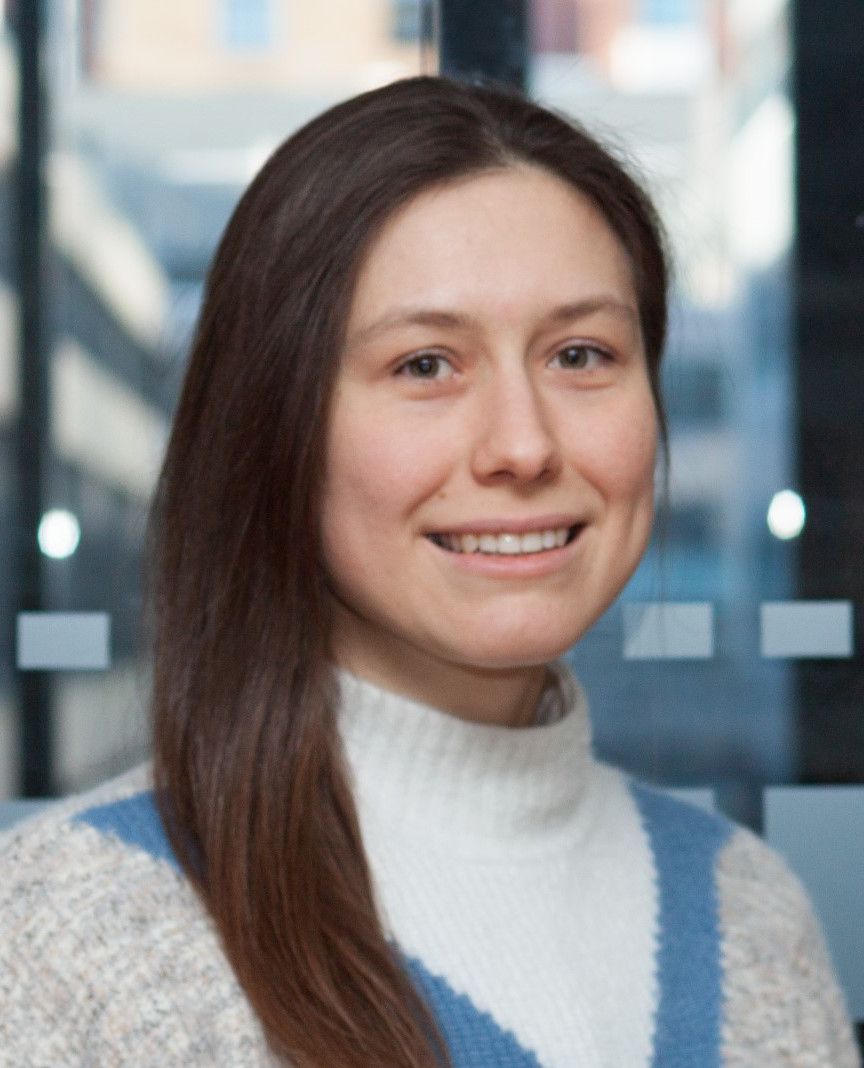 |
Guseva, Anna Filiation: Observatoire de Paris Biography Dr. Anna Guseva studied a Bachelor degree in Thermophysics at the Moscow Power Engineering Institute and did her Master thesis at the same institute with a thesis titled "Nonlinear analysis of the azimuthal magnetorotational instability". Then, she moved to Germany to do her Ph.D. at the University of Bremen, focused on angular momentum transport and dynamo action. After finishing her PhD in 2018, Dr. Anna Guseva moved at Universidad Politécnica de Madrid (UPM), working on the properties of turbulence in wall-bounded flows. She was, then, a Marie-Curie Research Fellow at the University of Leeds, UK, and currently works at the Observatoire de Paris (Meudon). Apart from Marie-Curie she has been also Kavli Fellow among other prestigious grants. Her work in fluid dynamics and stellar modelling as a member of the DYNAMOS research group from Meudon has been highlighted in the most renowned conferences of the field. Date:
|
|||||
 |
de Alencar Dupke, Renato Filiation: Observatório Nacional - Rio de Janeiro Biography Renato Dupke serves as a Senior Research Scientist at the National Observatory of Brazil and also as Visiting Assistant Research Scientist at the University of Michigan. He is a Founder and Science Director of the Javalambre Physics of the Accelerating Universe Astrophysical Survey (J-PAS). He holds a Bachelor's and Master's degree in Physics and Mathematics from Moscow State University, completed in 1990 and 1993, respectively, and earned his PhD in Astrophysics from the University of Alabama in 1998, after which, he has held several positions, including a Research Fellow at the University of Michigan (1999 to 2002), followed by roles as an Assistant Research Scientist until 2009 and subsequently as a Visiting Assistant Research Scientist. He has also been a Visiting Professor at the University of Alabama, Tuscaloosa, since 2011. His extensive experience encompasses the analysis and reduction of data from various high-energy astrophysics satellites, such as Chandra, XMM-Newton, Suzaku, ASCA, FUSE, and the Hubble Space Telescope in optical. Renato's research primarily focuses on the origin and evolution of galaxy clusters and groups, with particular emphasis on the intracluster medium (ICM). His interests span ICM energetics, heavy element injection mechanisms, cluster merging, and the interaction of galaxies with the ICM. He also investigates fossil groups of galaxies, supernova explosion mechanisms, large-scale structure, and dark matter properties, utilizing spatially resolved spectroscopy with advanced X-ray telescopes. As a principal investigator, he has led numerous observing programs across prestigious satellites, including for the Chandra (8), the XMM-Newton (12), Suzaku (2), FUSE (2) satellites, Hubble Space Telescope (5) and several ground telescopes including VLA, Magellan Telescope (2), Gemini Telescope (5), Palomar and CFHT. Date:
|
|||||
 |
Jáquez Domínguez, Jesús Miguel Filiation: Instituto de Radioastronomía y Astrofísica - UNAM Biography Dr. Miguel Jáquez obtained his PhD at the IRyA-UNAM with a Thesis entitled “Simulated Observations of Star-Forming Regions: Physical Properties and Comparison to Observations”. This work consisted of radiative-magneto-hydrodynamic models of processes taking place in star-forming regions, in special, disks and jets at very early stages of the star formation process. In a first step, detailed synthetic images of the gas and dust emission in the systems at several wavelengths were produced. Then, observations of these phenomena with current and future radio instrumentation (ALMA, VLA and ngVLA) were simulated. His work offers predictions about observational signatures specific for each phenomenon, and explores and defines observational strategies in order to extract useful information from current and future radio instrumentation. During the development of this PhD project, Dr. Jáquez became an expert in the radio interferometry technique, as well as in the use of several astrophysical tools: radiative transfer codes (e.g., RADMC3D, SKIRT), radio observation analysis and simulation software (CASA), physical models of disks and jets, radio interferometric imaging techniques (e.g., CLEAN, MAXIMUM ENTROPY, REGULARIZED MAXIMUM LIKELIHOOD). After his PhD, Dr. Jáquez started a postdoc position within IRyA's planet formation group leaded by Dr. Carrasco-González. He is now focused in the study of DUST EMISSION IN PROTOPLANETARY DISKS WITH REALISTIC PARTICLES. In the last year, Dr. Jáquez has produced radiative transfer models of disks with different characteristics. He has also setup all the necessary tools to simulate the observation of this emission with radio interferometers. The most important and innovative aspect of these new models are the inclusion of DUST POLARIZATION and the possibility of deal with DUST PARTICLES WITH REALISTIC SHAPES. These two aspects are usually ignored in disks models, but they have recently revealed as fundamental pieces of information for the understanding of how dust growth to form planetesimals. Date:
|
|||||
 |
Díaz Beltrán, Ángeles Isabel Filiation: Universidad Autónoma de Madrid Biography Ángeles I. Díaz is a Professor at the Universidad Autónoma de Madrid. Previously, she was an ESA Fellow (Université de Liege, Belgium), Research Consultant (Royal Greenwich Observatory, UK), and Teaching Assistant (Yale University, USA). As a recognized international expert in Extragalactic Astronomy, she has participated in major international collaborations, and published more than 150 papers in internationally renowned journals. Her research interests include the study of the physical conditions and chemical abundances of ionized gas in galaxies and circum-nuclear star-forming regions. She has participated in 25 research projects (PI>50%). She has given numerous invited talks at conferences, and has been an organizing member of multiple conferences/workshops. Finally, she is strongly involved in the management of science and the University (e.g. Head of the Department of Theoretical Physics, Vice-Dean of Science UAM; ESAB IAA), as well as in the popularization of astronomy. She belongs to the extended group of the Women and Astronomy Commission of the SEA. Date:
|
|||||
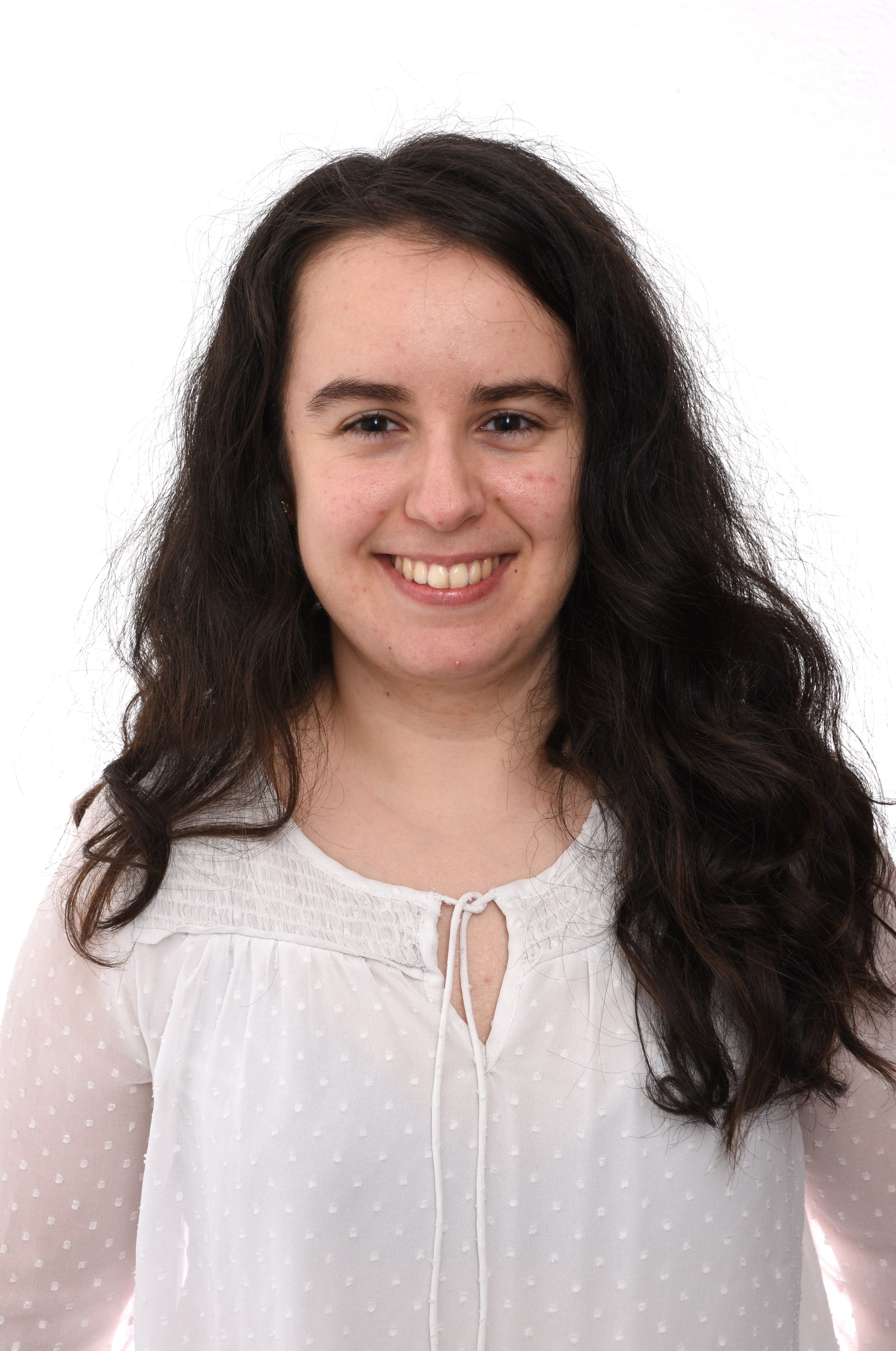 |
Acuña Aguirre, Lorena Filiation: Max Planck Institute for Astronomy (MPIA) Biography Dr. Lorena Acuña earned her Ph.D. in 2022 from Aix-Marseille University (AMU), Marseille, France. During her time in AMU and the Laboratoire d’Astrophysique de Marseille (LAM), she specialized in the interior and atmosphere modeling for super-Earths and sub-Neptunes, with the aim to provide tools for the interpretation of data provided by ongoing missions, including CHEOPS, TESS, ESPRESSO, JWST, and for the preparation of upcoming PLATO. As a postdoctoral researcher in 2022, she joined the Max Planck Institute for Astronomy (MPIA) in Heidelberg, Germany. In this position, she is working with Prof. Laura Kreidberg, who is the managing director of MPIA, and a leading expert in exoplanet atmospheric characterization with space-based observatories such as HST and JWST. Dr. Acuña’s research involves elaborating observational strategies to break degeneracies in compositional models, ranging from Earth-sized planets to gaseous giant exoplanets. Her research interests also include open-source software and machine-learning applications. Date:
|
|||||
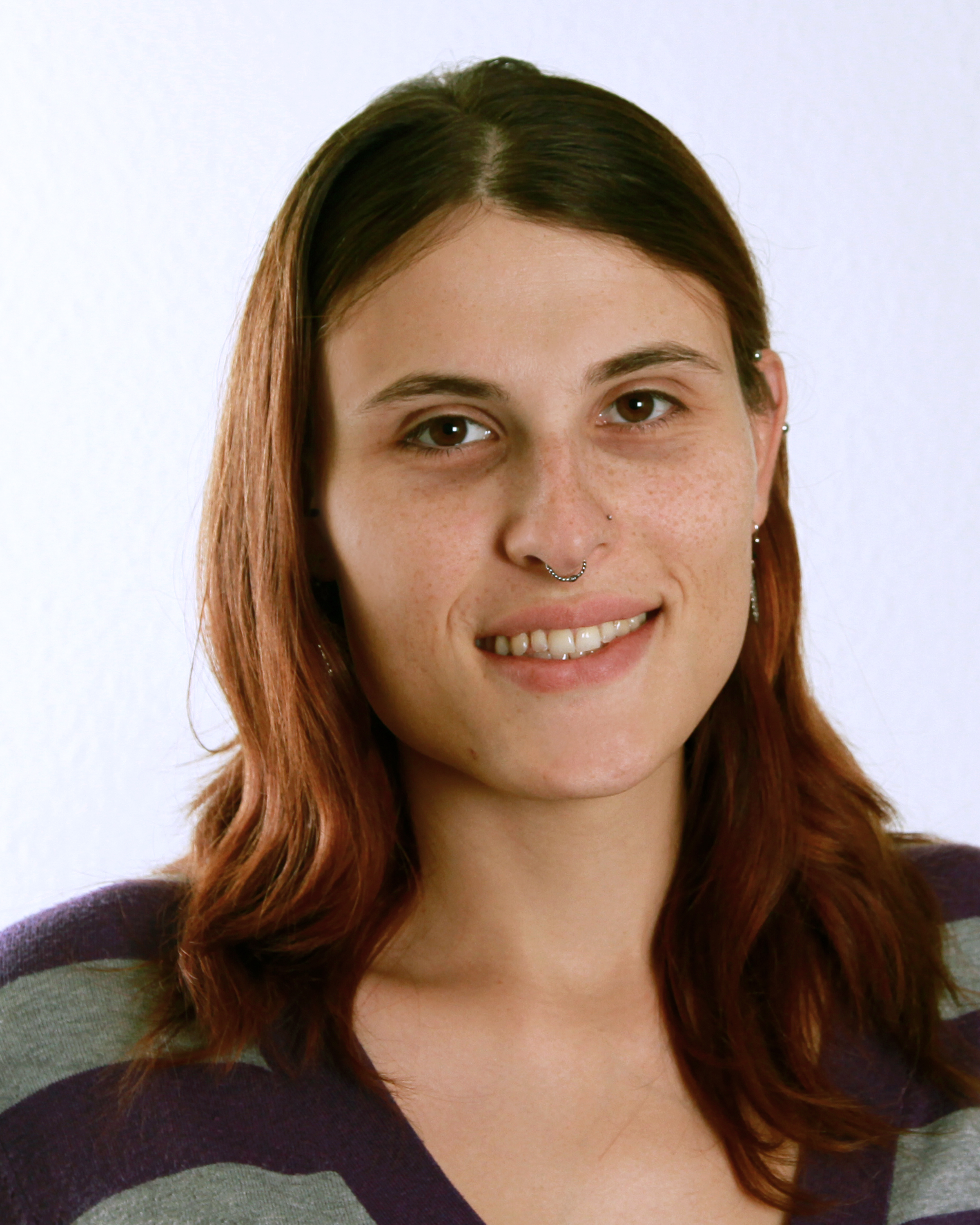 |
Nievas Rosillo, Mireia Filiation: Instituto de Astrofísica de Canarias Biography Dr. Mireia Nievas Rosillo obtained her PhD at the Universidad Complutense de Madrid in 2018. After, she completed postdoctoral periods at Deutsches Elektronen-Synchrotron (DESY) in Germany between 2018 and 2020. Since then, she has worked as a postdoctoral researcher at the Instituto de Astrofísica de Canarias within the MAGIC Collaboration, where she is the convener of the Extragalactic Working Group, the CTAO Science Consortium, and the LST-1 collaboration, where she was the coordinator of the Extragalactic Physics group. Her main interest is the study of blazars, radiogalaxies, and their relativistic jets, with a special focus on those able to emit the most energetic radiation in the Universe, with the goal of understanding the physics behind the particle acceleration that produces such energetic emission. Date:
|
|||||
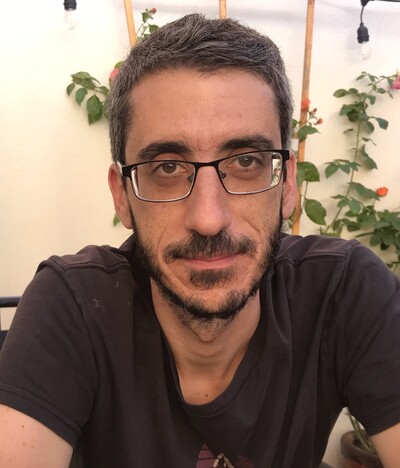 |
Carrasco González, Carlos Filiation: Instituto de Radiastronomía y Astrofísica - UNAM Biography Expert radio astronomer. Graduated in Physics at the University of La Laguna (Spain) in 2004, focused on Astrophysics specialty. Worked as a PhD student at the Instituto de Astrofísica de Andalucía (IAA-CSIC) and obtained the PhD degree at the University of Granada (Spain) in 2010. Then, three years working as a postdoctoral researcher at the Max-Planck-Institut für Radioastronomie (MPIfR) in Bonn (Germany). In 2013, earned a tenure-track position at the level of Assistant Professor at the Instituto de Radioastronomía y Astrofísica (IRyA) of the Universidad Nacional Autónoma de México (UNAM). At present, a permanent UNAM’s researcher at the level of Senior Associate Professor. Main lines of research are two important phenomena that takes place during the formation of stars and planets: protostellar jets and protoplanetary disks. Important contributions about the launching and collimation mechanisms in protostellar jets, and its relationship with accretion and the early evolution of protostars. Interested in the study of relativistic jets from Active Galactic Nucleii and microquasars. Important contribution in the study of protoplanetary disks, in particular, how dust evolve to form new planetary systems. Most the research is based on high sensitivity and high angular resolution observations obtained with some of the most powerful radio interferometers in the world: the Very Large Array (VLA) and the Atacama Large Millimeter Array (ALMA), but also other interferometers such as the Australian Telescope Compact Array (ATCA), the Combined Array for Research in Millimeter-wave Astronomy (CARMA), the Giant Metrewave Radio Telescope (GMRT), the Sub-Millimeter Array (SMA), and the eMERLIN interferometer. Also experience in the use of single dish telescopes, such as the 100-m antenna in Effelsberg (Germany). Also strong participation in radio instrumentation projects, such as the TolTEC camera of the Large Millimeter Telescope (LMT), and the Next Generation VLA (ngVLA). Expert in the observation, analysis and interpretation of the continuum emission (free-free, dust thermal, and synchrotron emission) and its polarization in the centimeter to millimeter wavelength range. Also experience in analyzing molecular line data and observations, X-Ray and optical/IR observations. The most important results up to date are the detection and study of magnetic fields for the first time in protostellar jets, the observation of the earliest stages of collimation in jets, accretion disks in very young massive protostars, the study of the particle acceleration phenomenon in protostellar jets, and the characterization of the dust properties in protoplanetary disks around solar-type young stars. To date, around 100 publications which have received more than 2,500 citations, and principal investigator of several works published in high impact journals such as Letters and Science which have received great attention form the astronomical community and the general public. Date:
|
|||||
 |
Toalá Sanz, Jesús Alberto Filiation: Instituto de Radioastronomía y Astrofísica, Universidad Nacional Autónoma de Mexico Biography Jesús A. Toalá (Sinaloa, México, 1983) obtained his PhD degree in 2014 at IAA under the supervision of Drs. Martín A Guerrero (IAA) and Jane Arthur (UNAM, Mexico). His PhD thesis “X-ray emission from hot bubbles around Evolved Stars” addresses the production of X-ray emission from planetary nebulae and Wolf-Rayet nebulae using Chandra and XMM-Newton X-ray observations and radiation-hydrodynamical simulations. He worked shortly as a postdoct at IAA, but he was immediately appointed a “Distinguished Postdoc" at the Institute of Astronomy and Astrophysics of the Academia Sinica of Taipei, Taiwan. He currently works at UNAM (Morelia, Mexico), where he leads the Evolved Stars group. His interests include the impact of evolved stars into their circumstellar medium using multi-wavelength observations and simulations. Date:
|
|||||
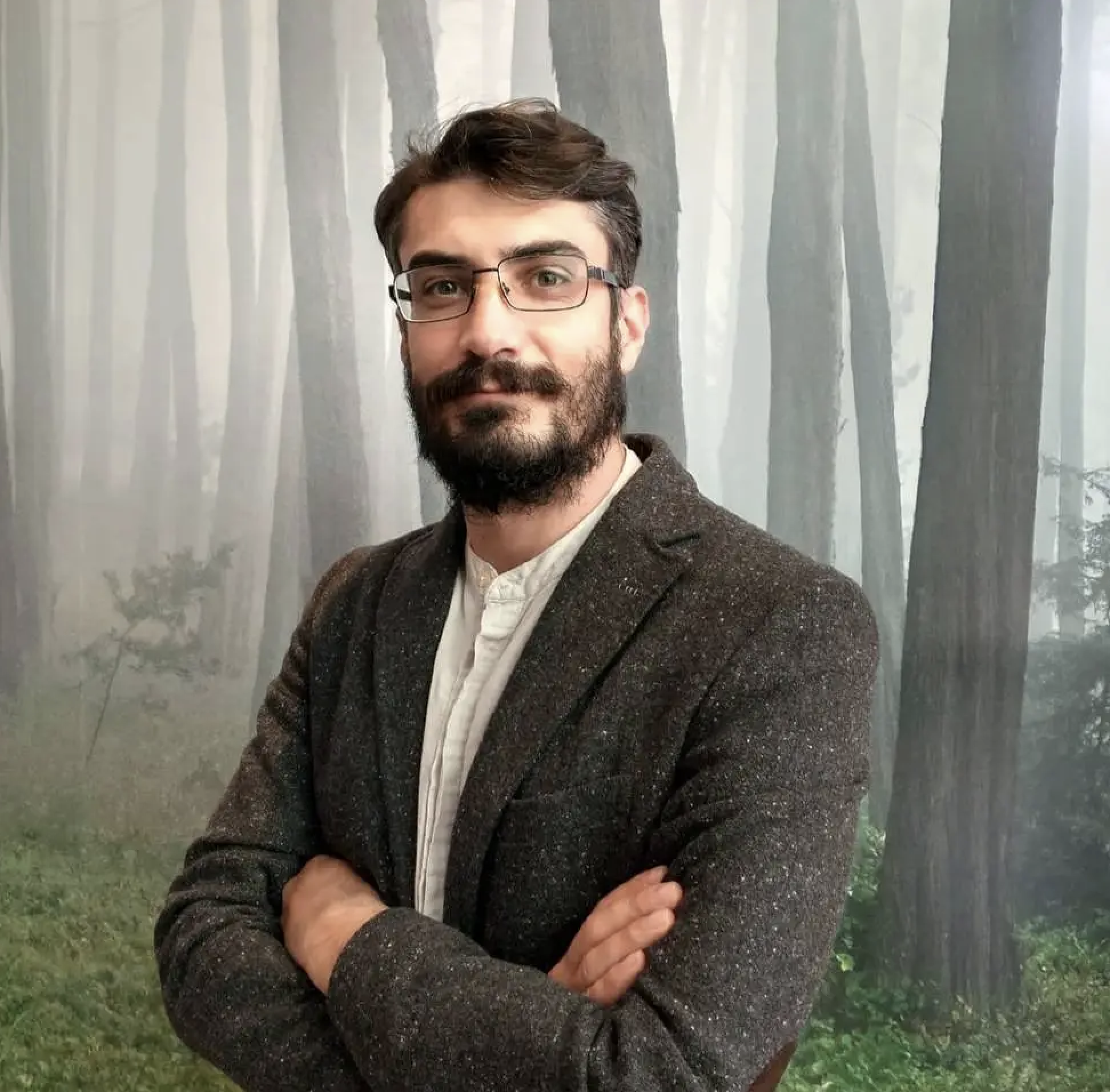 |
Gkouvelis , Leonardos Filiation: Ludwig-Maximilians-Universität (LMU) Biography Dr. Leonardos Gkouvelis earned his Ph.D. with top honors in 2017 from the University of Valencia, Spain, specializing in stellar physics. Motivated by the recent (exo)Planetary revolution, he ventured to Belgium to work on planetary atmospheres as a postdoctoral researcher mid-2017 at the University of Liege. In 2020, he received a NASA Postdoctoral Program fellowship and became involved in 3D-model development for Mars climate. Since 2022, he has been a staff scientist at the Munich Observatory, part of Ludwig-Maximilians-Universität (LMU) in Germany. In this position, he joined the world's leading expert, Prof. Kevin Heng, a theoretical astrophysicist studying exoplanets' atmospheres and exoclimes, ex-director of the Center for Space and Habitability (2016 to 2021, Bern-Switzerland), and currently the holder of the Chair Professorship in Astrophysics at LMU. Dr. Gkouvelis is the group leader in high-performance computing for global climate modeling of exoplanets and machine learning applications. Date:
|
|||||
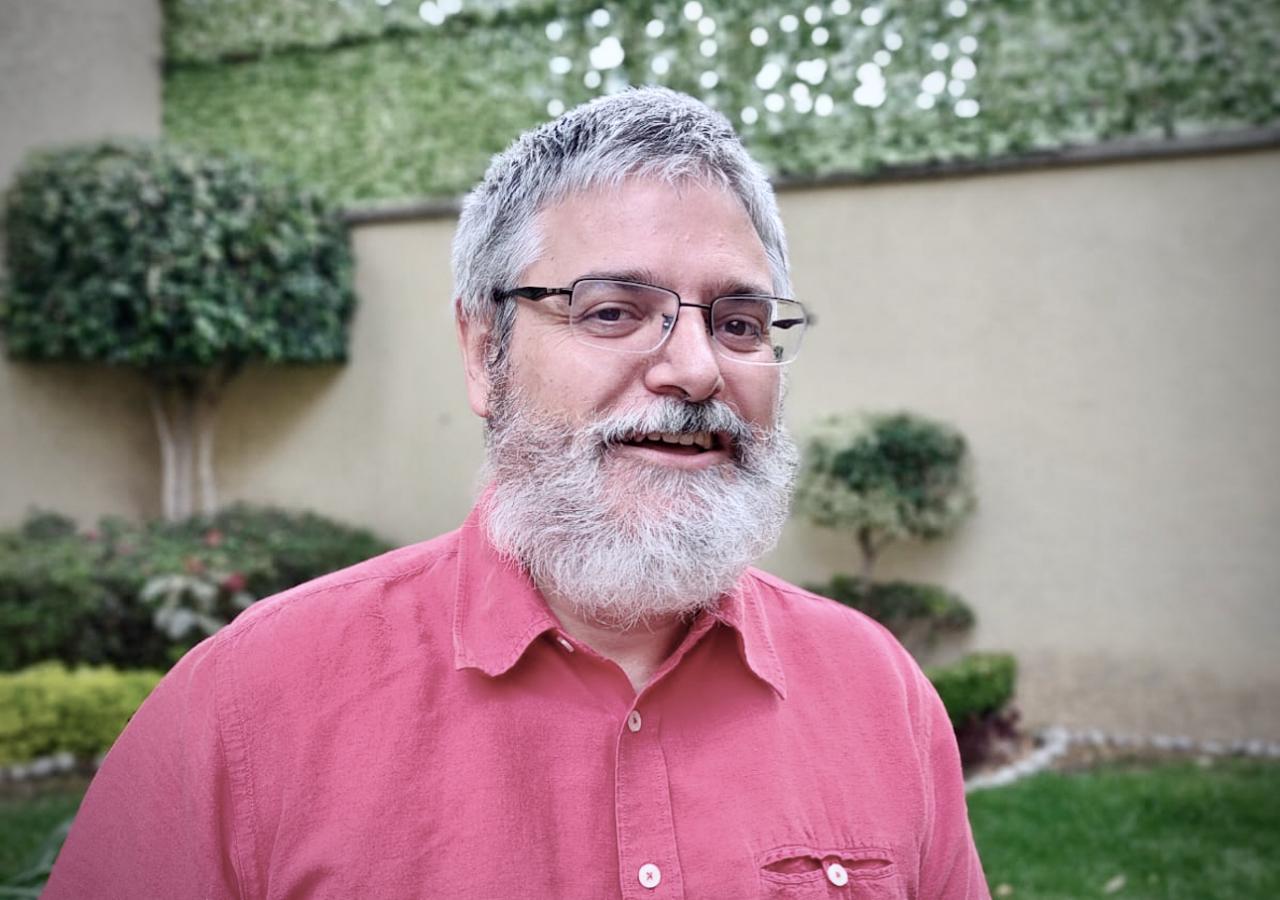 |
Sánchez Sánchez, Sebastian Filiation: Universidad Nacional Autónoma de México Biography Observational Astronomer with instrumental experience. BSc and PhD in physics (U. of Salamanca, 1995 and U. of Cantabria, 2001) with Sobresaliente and "Cum Laude" qualitifications. He. worked at the ING-La Palma (2001) and Calar Alto (2004-2010) observatories (covering all range of positions), with postdoctoral stays at AIP (Marie Curie RTN, 2002-2004, Germany), CEFCA (ARAID, 2010-2011), and IAA (RyC, 2011-2012). Since November 2013, he is researcher at the Instituto de Astronomía of the Unv. Nacional Autónoma de México, first as Investigador Titular B (IT-B), and since 2018 as Investigador Titular C (the highest academic position at UNAM). He is focused on understanding the evolution of galaxies through the exploration of their spatially resolved spectroscopic properties, pioneering the implementation of Integral Field Spectroscopy (IFS) techniques in this field. He conceptualized and provided the community with computational methods to reduce, visualize, and analyze the stellar populations and ionized gas of these data. I was the first to propose the existence the local relationships between the surface mass density and the star formation rate, as well as the oxygen abundance. He has been the PI of the first large-scale integral field spectroscopy survey of galaxies in the Local Universe (CALIFA, http://califa.caha.es), which involved more than 80 scientists from over 20 countries, resulting in over a hundred publications in peer-reviewed journals, more than 50 conference presentations, and the mentoring of 24 PhD and MSc students. These results have changed the paradigm of studying galaxy evolution, now focusing on understanding local processes and relationships, which underpin global ones. This has laid the groundwork for new larger IFS surveys such as MaNGA, SAMI, or AMUSING, of which he is a promoter and founding member. The relevance of these research endeavors has been recognized worldwide, leading to regular invitations to participate in evaluation panels (e.g., ERC, ESF, HST TAC, MINECO/EVALUA, CONICYT, CONACYT), scientific organizing committees for conferences, and delivering seminars and invited and reviewing talks (25 oral presentations in total). These achievements led the prestigious Annual Review of Astronomy & Astrophysics (the highest-impact journal in the field) to commission a review article from me (Sánchez 2020). I have contributed to ~600 publications (~350 in peer-reviewed journals, ~41 as 1st author), with ~24,000 citations (~3,000 as 1st author), with an H index of 90. He has supervised or co-supervised eight PhD theses, four MSc theses, and one MSc thesis, with three more ongoing PhD and MSc supervisions. He participated in over a dozen research projects, both national and international, encompassing basic science (e.g.,PI:CALIFA, co-PI:EDGE, ALMAQUEST, MaNGA/SDSS-IV), instrumental development (e.g., PI:CAFE, LVM/SDSS-IV, TARSIS, MEGARA), data analysis sofware (PI:pyPipe3D, PI:E3D, PI:R3D), and distribution (PI:SDSS17 Pipe3D VAC, PI:eCALIFA). He has been PI of 14 research funded projects, beside personal fellowships, at a national and regional level, with ~1.9 Million Euros granted in total. Date:
|
|||||
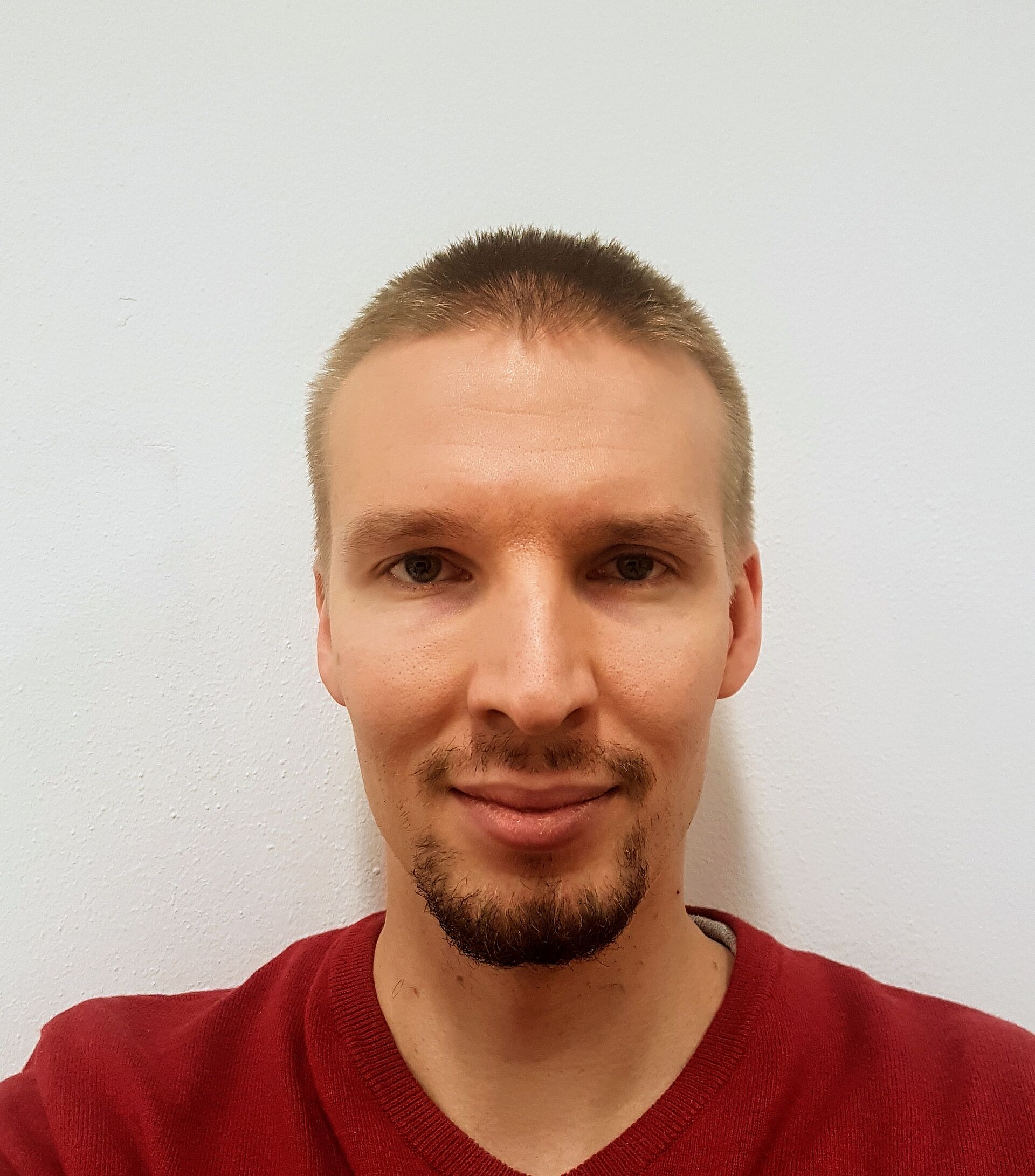 |
Markkanen , Johannes Filiation: Institute of Geophysics and Extraterrestrial Physics, TU Braunschweig Biography Post-doctoral researcher at the Institute of Geophysics and Extraterrestrial Physics TU of Braunscheweig, Germany. He received the D.Sc. (tech.) degree in electrical engineering from Aalto University in 2013 with title “Integral equation methods for extreme-parameter materials and novel boundary conditions”. Specialized in integral equation methods in computational electromagnetics for modeling complex electromagnetic media and surfaces. His has developed a robust model framework to characterize cometary dust particles from photopolarimetry. He has been awarded with the 2019 Elsevier/JQSRT Peter C. Waterman young scientist Award for his outstanding early-career contributions on the theory and applications of electromagnetic Scattering. Date:
|
|||||
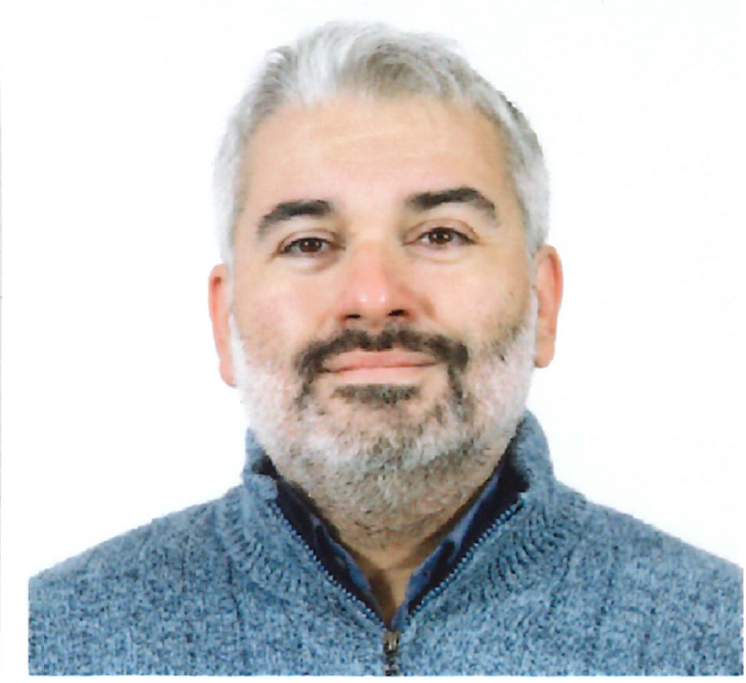 |
Bonnoli, Giacomo Filiation: INAF - Osservatorio Astronomico di Brera (Milan, Italy) Biography Researcher in the field of blazars and Cherenkov Astronomy. Member of the ASTRI, LST, CTA, MAGIC Collaborations. External collaborator of the VHEGA (Very High Energy Group for Astrophysics) group @ IAA. Collaborator of IXPE, POLAMI, and WEBT. Date:
|
|||||
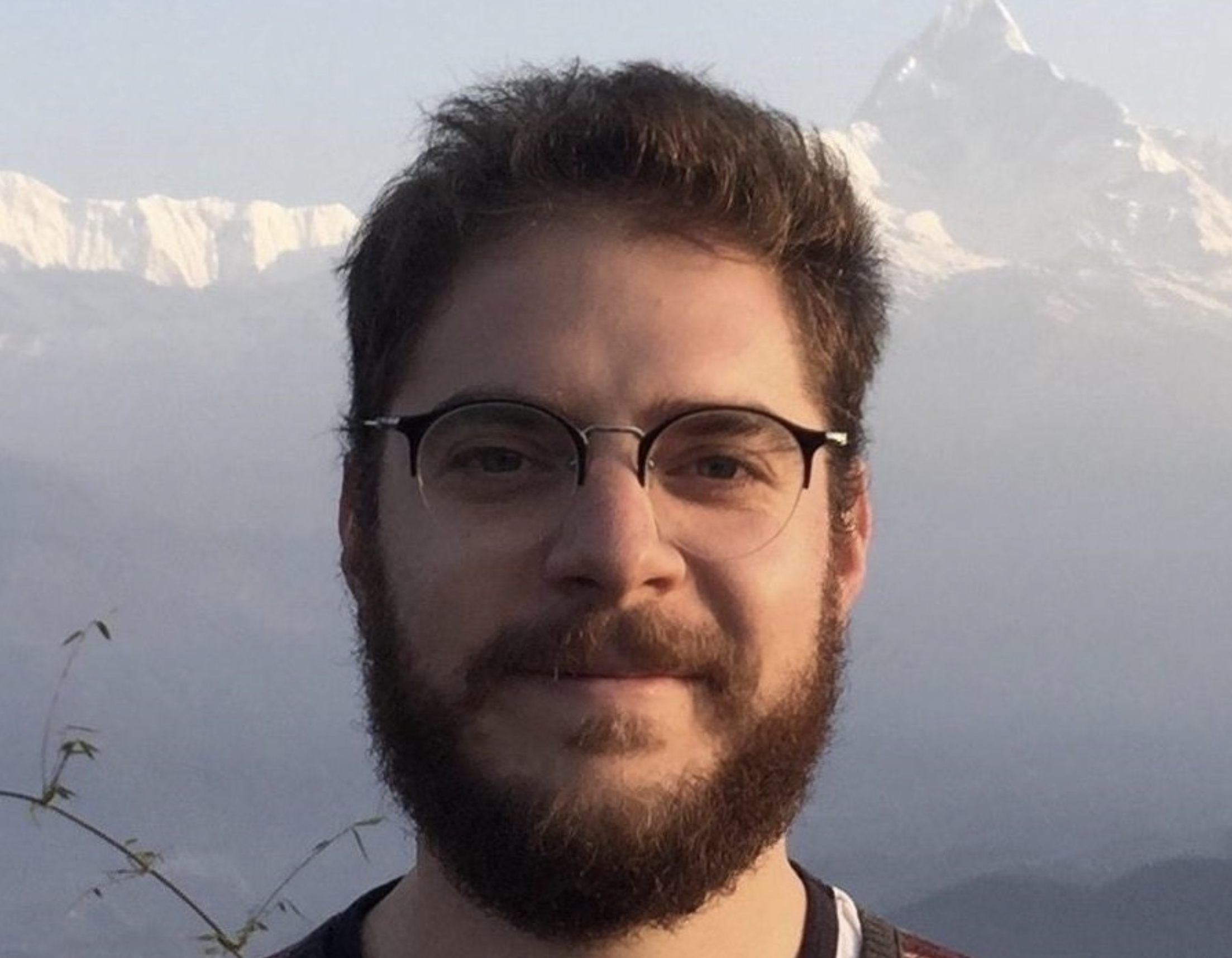 |
Luque , Rafael Filiation: Univ. de Chicago, Chicago, EEUU Biography Born in Priego de Córdoba (Spain), Rafael Luque graduated in Physics from the University of Granada and is a Doctor summa cum laude in Astrophysics from the University of La Laguna in the Canary Islands, Spain. His field of research comprises the discovery and characterization of exoplanets. He has conducted research stays in Mexico, Canada, the Canary Islands, Germany, France, and the US. Since 2022, he works at the University of Chicago as a Margarita Salas fellow. Date:
|
|||||
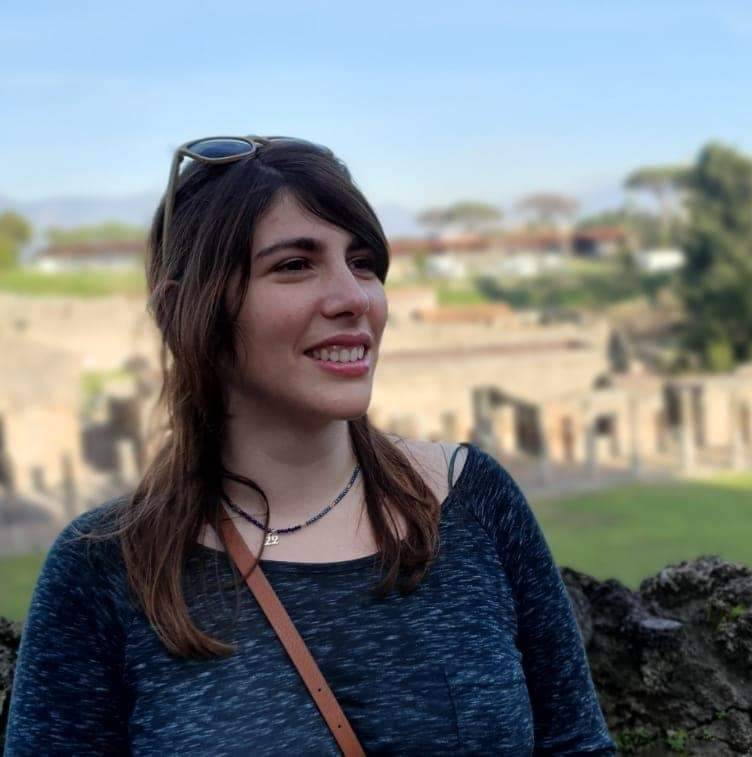 |
Koutoulaki, Maria Filiation: University of Leeds Biography Dr. Maria Koutoulaki, originally from Greece, did her PhD at the Dublin Institute for Advanced Studies (DIAS), in Ireland, working in the field of star formation under the supervision of Prof. Tom Ray, Prof. Antonella Nata, and Prof Rebeca Garcia. After her PhD, she moved to the European Southern Observatory (ESO) headquarters in Garching, Germany, where she joined the group of Prof. Leonardo Testi and now she is a Postdoctoral Research Fellow at the University of Leeds in the group of Prof. René Oudmaijer. Date:
|
|||||
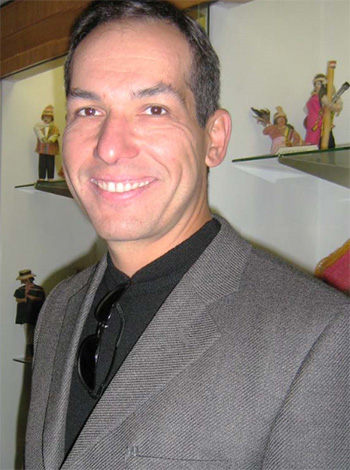 |
Dupke, Renato Filiation: Observatorio Nacional Rio de Janeiro Biography Dr. Dupke is a widely recognized expert in galaxy clusters and the intracluster medium. His analyses are specifically focused on the X-ray emission of the hot gas as well as its chemical composition, and on the nature of Fosil groups and related galaxy association. He is Scientific Director of the international JPAS Survey, a coordinated effort between four institutions (including IAA-CSIC) to map 8000 square degrees of the Northern Sky in 60 filters; JPAS is central to the strategy of research of the SO and is an institutional project of the IAA-CSIC. Date:
|
|||||
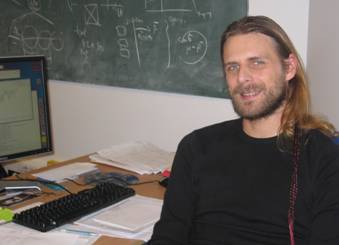 |
Millour, Ehouarn Filiation: Laboratoire de Météorologie Dynamique (LMD), Institut Pierre Simon Laplace (IPSL), Sorbonne University, Paris, France Biography Dr. Ehouan Millour is the deputy leader of the team developing the Planetary Climate Models (PCM) (http://www-planets.lmd.jussieu.fr ), general circulation models designed to model the atmospheres of Mars, Venus, Titan, gas giants and exoplanets. He is the technical manager in charge of the Mars Climate Database and Venus Climate Database. He plays an active role in different space Mars missions, such as the Emirates Mars Mission, ExoMars Trace Gas Orbiter, and InSight. He contributed to more than 75 referred publications and 150 international conferences in the field of planetary sciences. Date:
|
|||||